By Renata Hill, Moodfuel News
Colorado and the nation have experienced highs and lows, challenges and hope during 2022
The year 2022 was a tumultuous, difficult, horrendous and hopeful one for mental health. The pandemic continued to affect global citizens at home and at work while the brutality of a European war shocked us. In the U.S., political violence, racism, homophobia, ageism, ableism, loss of deeply valued freedoms and interacting with each other virtually more than in-person diminished our mental health. Colorado limped along, ranking last in access to mental healthcare and sixth in suicides, but with progress in sight.
According to the Colorado Health Institute, 1.4 million Coloradans cited stigma, being under- or uninsured, scheduling, provider incompetence, staffing shortages, lack of childcare, racism and other aspects as barriers to care. Plus, the inadequacies discovered within the "safety net" of Colorado's state-funded community mental health centers presented a previously unknown problem.
The silver lining of 2022 is the much deeper awareness we have gained about the importance of our mental health. Discussions about achieving or maintaining it, accessing resources and treatment and the ways in which healthcare, insurance, corporate and government systems prevent full and equitable support have bubbled into our consciousness. More good news is that celebrities, elected officials and government agencies are smashing stigma by talking openly about mental health challenges.
National problems and progress
For people experiencing an immediate mental health crisis, the Substance Abuse and Mental Health Services Administration (SAMHSA) launched the 988 Lifeline in 2022. This three-digit dialing code works like 911, but specifically connects callers, texters and chatters to trained mental health professionals instead of emergency responders. Suicide prevention advocates hope 988 will better support communities of color who are fearful of law enforcement interactions.

In Colorado, 988 calls are routed to Colorado Crisis Services managed by Rocky Mountain Crisis Partners. The national service was paid for initially through American Rescue Plan Act (ARPA) funds and will be sustained by a surcharge on phone users and carriers.
Workforce burnout has been high on the list of national challenges this year. TikTok influencer Brian Creely captured the public angst early on by creating the phrase "quiet quitting" as many, mostly Gen Xers and Millennials, decided they would no longer work harder longer for companies that didn't value them.
Wall Street continued to see opportunity in our struggles. The burgeoning digital mental health sector received $800 million across 76 big investment deals in 2022 while the year's total bankroll should exceed last year's sum of $29 billion. This sweltering deal-making has continued despite warnings by mental health advocates and tech experts about the lack of privacy in this new technology.

The glitterati joined the pluggers living with mental health challenges this year. Many actors, musicians and other celebrities spoke out about their depression, anxiety, bipolar difficulties and suicidal intensity, such as Katy Perry, Meghan Markle, Ryan Reynolds, Kerry Washington, Catherine Zeta-Jones, Selena Gomez and Tyler Perry. We mourned bright stars who lost their mental health battles, including dancer and executive producer Stephen "tWitch" Boss, actor Jason David Frank, comedian Teddy Ray, musician Naomi Judd and young reality stars Kailia Posey and Clint Arlis. Drug overdoses occurred among the celebrity elite as well, taking TikTok star Cooper Noriega, musician Taylor Hawkins, reality show star Jordan Cashmyer and musician Aaron Carter.
Colorado legislation
As ARPA funds flowed and the Colorado State General Assembly convened, legislators, mental health advocates and policy makers prepared to invest the largest single-year amount ever – $500 million – in residents' mental health through 17 measures and bills. Legislation ranged from forming a new cabinet-level agency to addressing treatment gaps for adults, youth and students and focusing on mental health holds to improving crisis system facilities. Governor Jared Polis signed 16 bills into law.
Existing programs, such as I Matter Colorado, the successful treatment program for youth 18 years and under, or 21 years and under for those receiving special education services, was expanded from three free sessions to six and renewed through at least June 2023. Domestic violence, harm reduction and naloxone programs also received a boost.
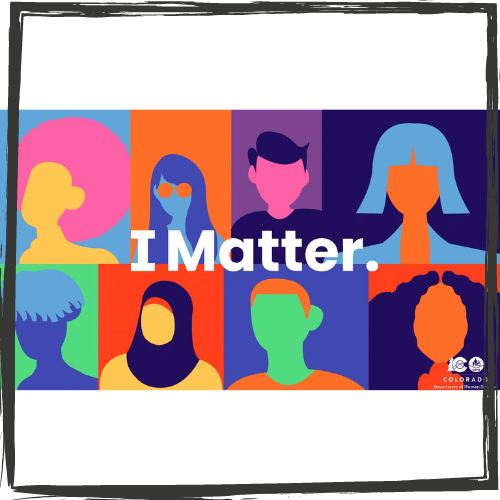
The most active bill sponsors were:
In January
January entered like a lion for survivors of the Marshall Fire near Boulder. They salvaged what they could after the most destructive wildfire in Colorado history destroyed 1,084 homes. Mental Health Partners and local businesses, nonprofits and government agencies continue to support residents who are recovering from this unequaled trauma.
Last year, Children's Hospital Colorado declared a youth mental health state of emergency and this year on Jan. 25 they announced the appointment of their first-ever chief of mental health, Dr. K. Ron-Li Liaw. She is a child psychiatrist with a background in trauma and resiliency who will lead the hospital system's new focus on mental health to address the rising number of suicidal youth.
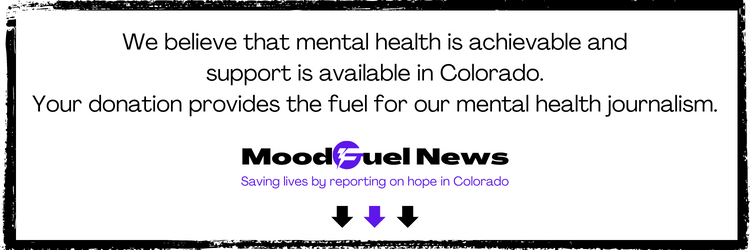
Also in January and stretching through 2022, Colorado investigative journalists collaborated with whistleblowers to report on Colorado's frayed mental health safety net comprised of 17 community centers throughout the state. The state has paid these private, nonprofit healthcare centers billions of dollars in non-compete contracts and privileged rates for half a century while they have operated without transparency or accountability. An unprecedented, three-agency audit of Mind Springs Health, the largest provider of mental health and substance use treatment on the Western Slope, revealed serious problems spanning extreme staffing shortages, hidden reports on deadly prescription errors, state payments for residents who never received care and complaints about the quality and safety of the care provided. The Colorado Department of Health Care Policy and Financing is currently withholding Medicaid payments to the company.
In May
Skipping ahead to the spring, May brought Mental Health Awareness Month (MHAM) to smash stigma and provide resources for those in need of support and treatment. In the nation's capitol, President Biden issued a proclamation. In Colorado, Governor Polis highlighted the importance of promoting mental wellbeing while developing an equitable, accountable and effective behavioral healthcare system.
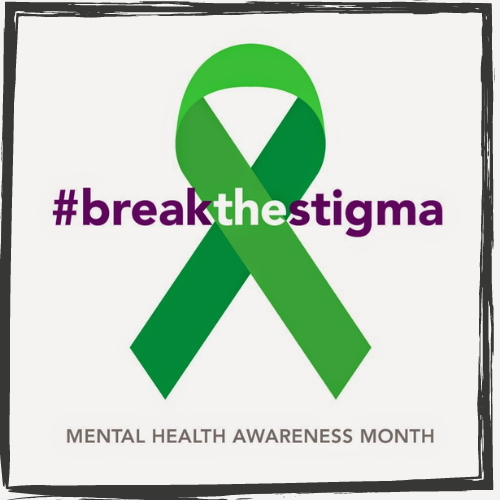
Organizations participated in various MHAM activities to raise awareness about mental health, including NAMI Walks, a virtual town hall by Children's Hopsital Colorado and mental wellness screenings around the state.
Children's Hospital also issued a statement about their patient numbers coinciding with a Centers for Disease Control and Prevention (CDC) study that indicated 44 percent of American teens reported feeling "persistently sad or hopeless" and one in five have contemplated suicide. The Colorado Department of Law and the Colorado Attorney General affirmed the precarious state of pediatric mental health in their Youth Mental Health Report published this month.
In June
Colorado has a mental health parity law for Medicaid consumers. That means health insurance companies must cover mental health and substance use conditions the same way they cover other medical conditions, like diabetes or heart disease. To inform and support Coloradans who may have been unfairly denied coverage, the Colorado Division of Insurance launched an online resource, “Mental / Behavioral Health and Insurance” on Jun. 1.
On Jun. 17, the World Health Organization (WHO) published their World Mental Health Report with the title, "Transforming Mental Health for All." It included a comprehensive assessment of the current mental health situation at the global level, a reflection on failure and progress and strategies to ensure urgently needed transformations.
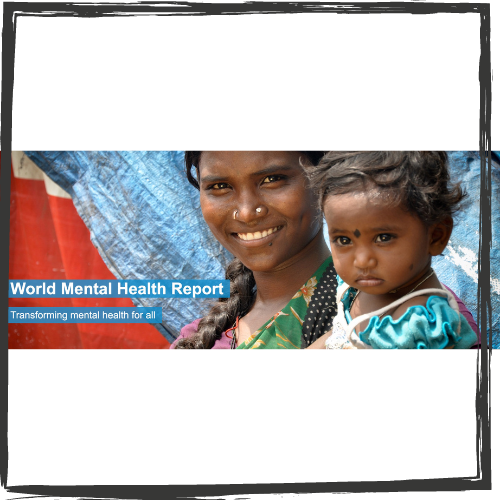
In July
July was a milestone month for mental health nationally and in Colorado. On Jul. 1, the Colorado Department of Human Services launched their Behavioral Health Administration (BHA) with Dr. Morgan Medlock as commissioner, a huge step toward creating an equitable, accessible, affordable and effective continuum of care for mental health and substance use services in our state. As it powers up over the next two years, this cabinet-level department will drive coordination and collaboration across state agencies to better address mental health and substance use treatment health needs.
The national Lifeline 988 dialing code launched Jul. 16. Now, anyone, anywhere in the nation can call, text to or chat with a trained crisis counselor who will help them navigate challenging moments and situations. SAMHSA oversees 988 and the service is administered by Vibrant Emotional Health, a nonprofit organization that has run the national Lifeline since its inception in 2005, but with the much less memorable number of 800-273-TALK. As of Nov. 30, SAMHSA reported that 402,798 contacts were routed to crisis counselors.

The Veterans' Crisis Line – the routing that occurs when someone accesses 988 then presses or selects "1" for a call or chat or texts 838255 – received 55,457 contacts. Initial funding came from ARPA and President Biden's fiscal year 2022 budget. At the state and territory level, in addition to existing public/private sector funding streams, the National Suicide Hotline Designation Act of 2020 allowed states to enact new telecommunication fees to help support Lifeline operations.
Bebe Moore Campbell National Minority Mental Health Awareness Month occurred in July as well. Campbell was an American author, journalist, teacher and mental health advocate who was determined to shed light on the mental health needs of the Black community.
In September
Each year, the month of September hosts suicide prevention awareness. The WHO estimates that 703,000 people make this final choice each year worldwide, and for every death there are likely 20 additional attempts and even more people who experience suicidal ideation. This intentional self-harm is the 12th-leading cause of death in the U.S. Also in America, more than half of all suicides involve firearms, and in 2o20 there were almost twice as many deaths by suicide than by homicide. For Colorado in 2020, the last year statistics were available, the CDC reported that 1,302 Coloradans died by suicide, ranking us sixth among all 50 states.
According to the Colorado Health Institute, while mental health is one risk factor, suicide is complex. Physical health challenges, lack of social supports, access to lethal means and situational causes, like loss of a job or loved one, also contribute to the risk. The Colorado Office of Suicide Prevention offers multiple resources for providers, community organizations, families and individuals.
This September, mental health advocates, prevention organizations, survivors, allies and community members united to promote suicide prevention. Sep. 4 through 10 was Suicide Prevention Week, a time to share resources and stories, and a lead up to World Suicide Prevention Day on Sep. 10. On that day, we remembered those affected by suicide and focused on efforts to provide support to those in crisis.

On Sep. 22, the Colorado Department of Human Services (CDHS) renamed an internal department and the two state-managed psychiatric hospitals. The Office of Behavioral Health was changed to a new mouthful – the Office of Civil and Forensic Mental Health (OCFMH) to reflect renewed programming and probably to avoid confusion with the BHA. Leora Joseph, former general counsel and chief administrative officer for the Auraria Higher Education Center, was appointed as director of the OCFMH in July. Plus, the Mental Health Institutes at Fort Logan and Pueblo received new monikers: the Colorado Mental Health Hospital in Fort Logan (CMHHIFL) and the Colorado Mental Health Hospital in Pueblo (CMHHIP).
On Sep. 28, the BHA exercised its authority and shut down part of the Western Slope’s mental health safety net due to concerns about the safety pediatric patients as young as seven. Medicaid recipients on the Western Slope in need of non-forensic, psychiatric hospitalization will need to journey to Denver, Salt Lake City or farther away until the BHA considers the situation resolved.
In October
October provided a brighter outlook. The Moodfuel News website launched on Oct. 1 and the first newsletter emailed on Oct. 4. We've been publishing original and curated, inclusive and solutions-based journalism every Tuesday, especially for under-resourced communities, since then. We're the only news outlet in Colorado to focus solely on mental health.
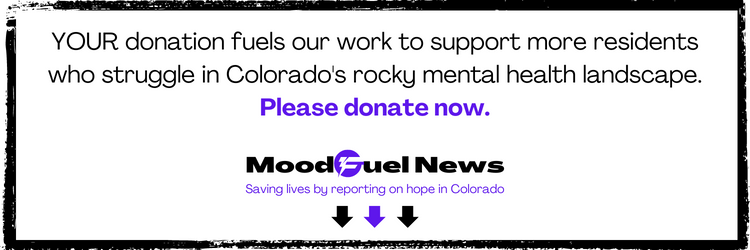
The Kaiser Family Foundation collaborated with CNN to produce the "Mental Health in America Survey" on Oct. 5. Of the 2,004 participants across all major demographic groups, 90 percent stated that a mental health crisis exists in the U.S. Also notable, young adults, ages 18-29, reported the most mental health concerns and were more likely to seek services, but weren't always able to access them.
World Mental Health Day occurs every year on Oct. 1o. This year, the WHO stated that the ability to reconnect after the pandemic would provide an opportunity to rekindle efforts to protect and improve mental health. Yes, let's.
On Oct. 18, Colorado watched the first-ever mental health debate between U.S. Senate candidates Joe O’Dea and incumbent Michael Bennet.
On Oct. 20, U.S. Surgeon General Dr. Vivek Murthy released a new "Framework for Mental Health & Well-Being in the Workplace." Amidst the quiet quitting trend, it outlined the foundational role that workplaces should play in promoting the health and well-being of workers and communities.
In November
During the election in November, Coloradans narrowly approved the medical use of psilocybin, the main psychoactive compound in "magic mushrooms." The U.S. Food and Drug Administration believes psilocybin may work as a treatment for many mental illnesses, such as depression, anxiety, PTSD, plus drug dependency and eating disorders. Clinical trials continue.

According to an email from the OCFMH, they received 1,083 competency restoration orders and completed 421 evaluations.
In December
Making news again on Dec. 5, the OCFMH celebrated the availability of 22 new beds for competency restoration patients at CMHHIFL. State legislator Judy Amabile stated previously that a minimum of 50 beds per 100,000 people is considered necessary to provide minimally adequate treatment for individuals with severe mental illness and Colorado only has about 10 beds per 100,000. As of Dec. 14, 432 jail inmates awaited competency treatment.
In summary
This year contained a variety of mental health firsts for the nation and our state. Let's hope we are creating not just a new trend, but a completely different, empowered way of living that enables us to view our mental and physical health holistically – interconnected and inseparable – to receive the care we need for both on a robust, equitable continuum, especially for those of us who are most vulnerable or at-risk.

That's it, that's all for 2022. We wish you a very Happy New Year! See you in 2023. 🎇


